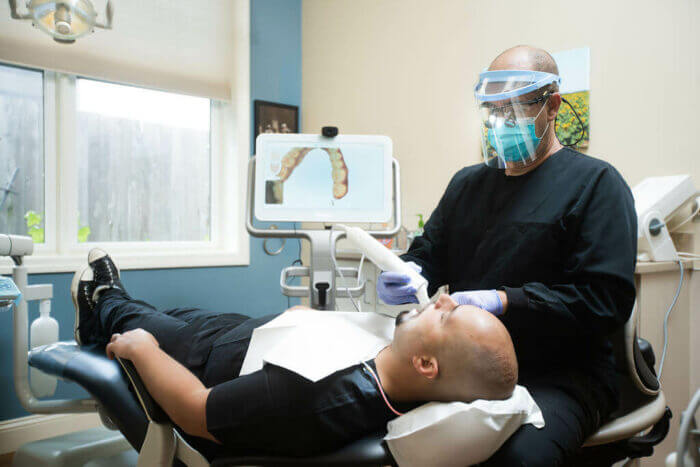
Extractions
Unfortunately, not all teeth can be saved. Sometimes tooth decay, gum disease and cracks are so severe tooth removal is required. A badly decayed or broken tooth can become infected and lead to a dental abscess. In these cases, and to prevent more severe systemic complications, dental extractions are vital.
After thorough diagnosis with x-rays and examination and a complete evaluation of your health history we will review all your options (including options for tooth replacement). Extractions are performed at the office using local anesthetic (Novocain) with an emphasis on safety and preservation of as much healthy tissue as possible. Patients can expect to be sore for a few days following their extraction. We will take time to thoroughly review post-extraction instructions and provide prescriptions for medication if necessary. In some cases, patients are asked to return in 1 or 2 weeks for a post extraction evaluation or for removal of sutures.
For the patients who require complex extractions or have significant health problems, your doctor may refer you to a specialist called an oral surgeon. These specialists have additional training and can even provide moderate or deep sedation for the anxious or nervous individual. In these instances, a separate consultation with the oral surgeon is required.
Oral Pathology
Occasionally we identify growths, masses or abnormal tissue during routine check-ups. Sometimes a patient will come to an appointment and mention a new or uncomfortable problem. Depending on the circumstances a biopsy may be indicated. A biopsy involves removing some or all of the abnormal tissue and sending it out to a pathologist for review under a microscope.
Biopsies can be performed at the office with local anesthetic (Novocain). The doctors are trained in the use of diode lasers and patients may not even need sutures (stitches) after the procedure. If the biopsy is complicated or if the patient requires sedation the patient may be referred to an oral surgeon for treatment.
At least once per year we perform oral cancer screenings on all our patients. Oral cancer is a serious, life-threatening condition that usually requires aggressive surgery and/or chemotherapy or radiation. Early identification is the single most important factor in successful treatment.
Chronic Conditions
Some patients experience problems in their mouths that are related to systemic diseases. These diseases may include diabetes, nutritional deficiencies, allergies, or autoimmune conditions. The doctors will work with you to identify the problem and help establish long term treatment protocols. Some of these conditions include Pemphigus and Pemphigoid.
